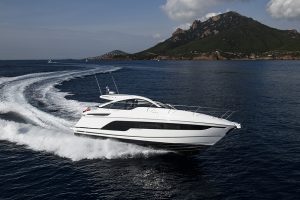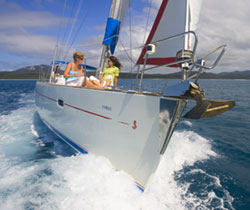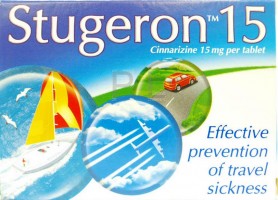Seasickness prevention and cure: the good, the bad and the dreadful
If there’s one thing guaranteed to suck the fun out a day boating, it’s an attack of the dreaded seasickness. Whether you’re a salty old sea dog or wet behind the ears, motion sickness can still strike
But what exactly causes seasickness? And, perhaps more importantly, what can be done about it?
The cause
Seasickness is a type of motion sickness caused by the motion of the craft. It’s thought to occur when there’s a conflict between what your eyes see and what your inner ears, which help with balance, sense.
So if, for example, you’re travelling at 10 knots, your eyes tell your brain that you’re moving, but your ears tell your brain that you’re sitting still.
Your brain can’t deal with the mismatch of information and reacts with the symptoms of travel sickness. Which leads us nicely to…
The symptoms
These can include pale skin, cold sweat, nausea, vertigo, dizziness, an increase in saliva, and vomiting. These can last for the whole duration of your journey and may even continue when you’re back on dry land. If this happens, however, you need to seek medical attention.
Anyone can suffer from seasickness, and it can strike at any time in your life, but some people are more vulnerable to it than others. Women suffer from seasickness more than men, and the likelihood of seasickness increases if a woman is pregnant or menstruating.
People who suffer from migraines are also more likely to suffer from seasickness, and may even experience it and a migraine simultaneously.
And children from age three – 12 are common seasickness suffers.
So, what can be done to prevent it?
Medicine
Prochlorperazine maleate is a medicine used to prevent nausea and vomiting. It’s available on prescription in the UK or over the counter from a pharmacy.
Buccastem M is a popular brand choice with our forum users. However, there are many people who should not take prochlorperazine maleate, such as those suffering from diabetes or who have a heart condition, so talk to your doctor or pharmacist before popping this pill.
Hyoscine patches are available via your GP and, as they stick to the skin behind your ear, may be good for those occasions when you can’t keep anything down. They need to be applied about five – six hours before travel and should keep you going for up to 72 hours.
Scopoderm is the hyoscine brand many forum users rave about but side effects can including blurred vision, so tread carefully.
Stugeron is another very popular pill choice. It’s available from the doctor or over the counter and needs to be taken two hours before travelling.
Biodramina is a pill that users swear by. Unfortunately at this stage it’s not available in the UK. It can be bought online, but make sure you purchase it from a reputable site and talk with a medical professional before you take Biodramina, or any form of seasickness medicine.
Natural remedies
Ginger is an old favourite for preventing nausea, and there are many different ways to ingest it, be it ginger beer, biscuits, tablets, chewing gum or even in crystallised form.
Acupressure wristbands are recommended by some as a natural remedy to travel sickness. There’s no medical explanation for why they work, but if they make you feel better then keep using them.
Driving the boat or having any job to concentrate on whilst at sea can work wonders to keep sickness at bay.
Lying down flat or staring at the horizon may also help your brain to reconcile what your ears and eyes are telling it.
Crisps. Yes really. There’s no rational explanation why eating a fatty, salty snack would help but anecdotally we hear that they can do wonders. Readers of YBW.com have singled out pickled onion Monster Munch and ready-salted crisps for special mention. If this works for you, then we can’t see a reason not to do it.
Try at your peril
These are genuine suggestions from YBW.com users.
“Alcohol can work well if you’re a passenger, so long as it’s not still rough when the hangover kicks in.”
“Anything works, so long as you say it convincingly enough.”
Tell us…
What do you find to be the most effective seasickness prevention or cure? Get in touch and let us know via the ybw.com forums or on our Facebook or Twitter pages.
We look forward to hearing from you.
Antifouling your boat
Get your boat into shape ahead of the new season with our guide to antifouling
Sealing
Sikaflex 291i is a non-sag, one component polyurethane adhesive/sealant specifically developed for the marine market where structural strength is not…
The expert-tested guide to buying a bargain new boat
If you're thinking of buying a new boat, follow these rules and you can't go wrong






















